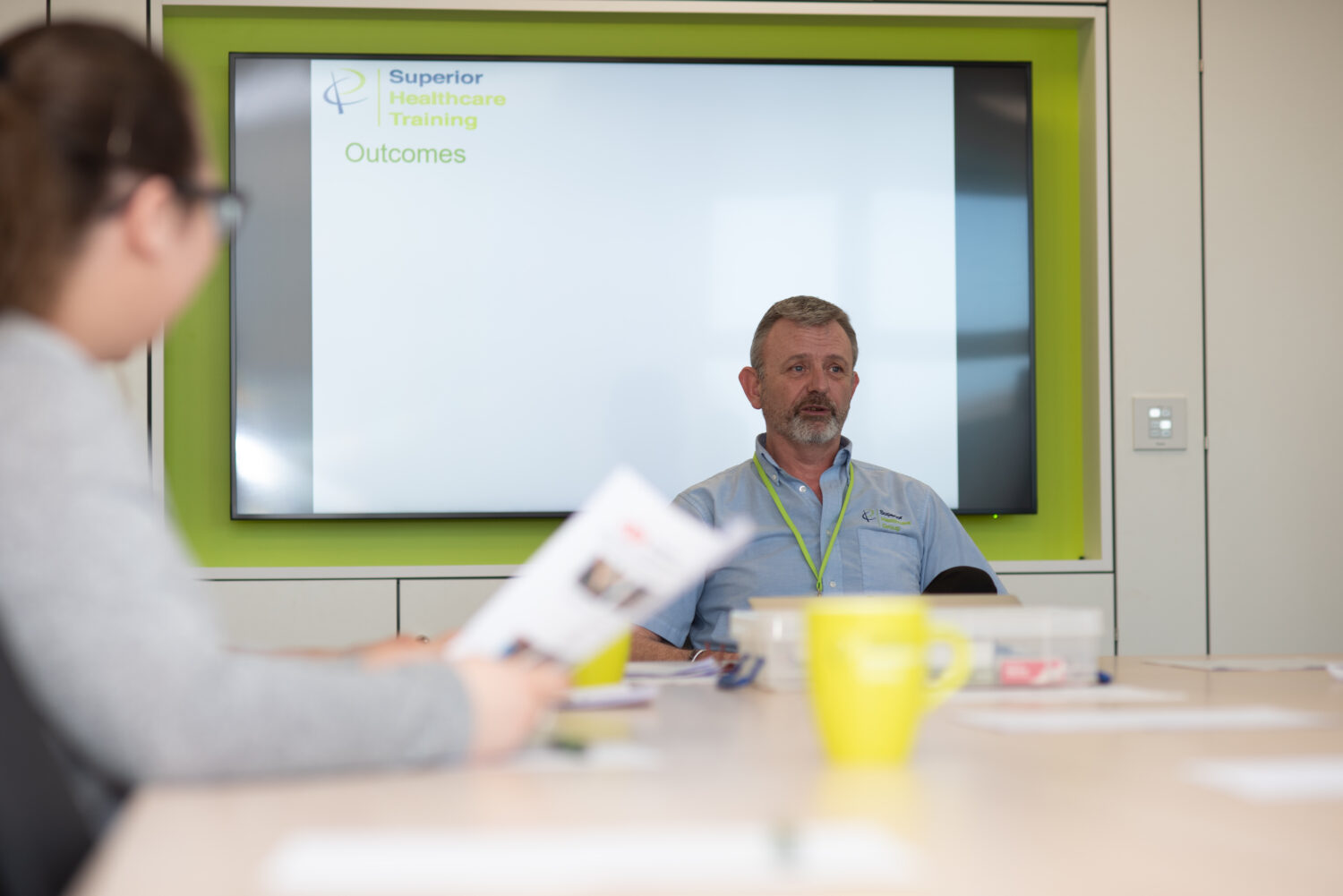Safeguarding Adults and Children Training
Our CPD-accredited Safeguarding Adults and Children training equips care and nursing teams with the skills to identify signs of abuse and respond in a person-centred way prompting rights and inclusion.
Our CPD-accredited Safeguarding Adults and Children training equips care and nursing teams with the skills to identify signs of abuse and respond in a person-centred way prompting rights and inclusion.


Our half-day Safeguarding Adults and Children Training is tailored for registered nurses, support workers, and healthcare assistants. We offer this training to our care and nursing teams, as well as external individuals and healthcare services across the UK.
The course focuses on equipping you with the essential knowledge to identify, report, and manage safeguarding concerns, ensuring the safety and well-being of those in your care, as well as your colleagues.
Through realistic practice scenarios, you’ll gain the confidence and skills needed to handle safeguarding situations effectively in your role.
Our safeguarding course empowers care and nursing teams with the essential knowledge needed to protect children and adults with complex health needs, as well as their families, colleagues, and themselves.
We thoroughly explore the 11 main forms of abuse, including physical, sexual, neglect and acts of omission, financial/material, discrimination, domestic abuse, emotional, modern slavery, female genital mutilation, institutional abuse, and radicalisation.
Over 6.5 hours, you will gain in-depth theoretical knowledge and complete competency assessments.
The training starts with an overview of key UK legislation and safeguarding frameworks, such as the Care Act 2014, which govern the protection of vulnerable adults.
It ensures that you understand your legal responsibilities and the standards required in safeguarding practices, providing a comprehensive understanding.
Gain an in-depth understanding of the various forms of abuse, including physical, emotional, financial, and neglect.
Learn how to recognise the distinct characteristics and dynamics of each type of abuse in an adult safeguarding context.
Identify the key indicators of abuse, such as physical marks, behavioural changes, and financial discrepancies.
This module will enhance your ability to spot early warning signs and assess the risk factors that may lead to abuse.
Understand the roles and responsibilities of both employers and employees in safeguarding vulnerable adults.
This section will cover best practice in reporting, documentation, and creating a safe working environment.
Explore the criteria that define vulnerability, including age, disability, and social isolation. Learn how to assess and identify individuals who may be at heightened risk of abuse.
This module will highlight the importance of maintaining dignity and respect when working with vulnerable adults. You’ll learn how to promote individual rights and inclusion while ensuring their safety.
Develop the skills to respond effectively when safeguarding concerns arise. Learn the correct procedures for reporting, escalation, and how to support individuals through the process.
Practice how to appropriately and sensitively respond when an individual discloses abuse. This module will cover best practices in communication, confidentiality, and support.
In this final module on safeguarding adults, we’ll explore the barriers that might prevent individuals from reporting abuse, such as fear of retaliation or lack of knowledge. You’ll also learn strategies to overcome these obstacles and foster a culture of open reporting.
Explore the principles of the “Every Child Matters” initiative, focusing on ensuring the well-being of children across five key areas: being healthy, staying safe, enjoying and achieving, making a positive contribution, and achieving economic well-being.
Debunk common myths and misconceptions about child abuse, and gain insight into the latest statistics that highlight the prevalence and impact of abuse on young people.
Learn about the short-term and long-term effects of abuse on children and young people. This module will cover physical, emotional, and developmental impacts, as well as the importance of early intervention.
Develop the leadership and practical skills required to effectively safeguard children. Learn how to lead by example and support your team in recognising and responding to potential abuse.
Identify the signs that may indicate a child is experiencing abuse, including physical injuries, behavioural changes, and unexplained absences. This module ensures you can act quickly and appropriately in response to these indicators.
Understand the procedures for reporting abuse or suspected abuse. Learn how to navigate the reporting process, from initial concern to formal reporting and follow-up.
Examine the barriers that may prevent individuals from reporting abuse, including fear of retaliation and lack of knowledge. This module will provide strategies to overcome these barriers and encourage a culture of open reporting.

We deliver our safeguarding training to social service providers, schools, nursing homes, private hospitals, residential homes, and hospices. This essential training is also provided to our care and nursing teams.
Training is also provided to external care professional wanting to refresh their safeguarding knowledge to match best practice standards.
All our training is CPD-accredited and can be used towards nurse revalidation requirements.


We conduct training sessions in Kent, Essex, Hampshire, East Sussex, and West Sussex.
Each location accommodates up to 13 delegates. For larger groups, we offer flexible options, such as providing multiple trainers on the same day or scheduling additional training days.
We also offer on-site training at healthcare providers’ premises. If your facility has a suitable training space, we can bring our expertise directly to you.
Our Training FacilitiesWe can help, complete the booking form or call 01227 771122.
Superior Healthcare is a trusted provider of client-specific, complex care, and health & social care training training across the UK.